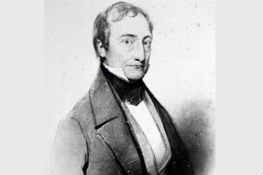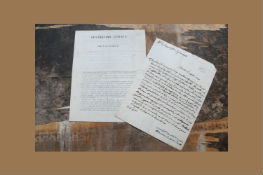Versione italiana English version Version française Versión en español
Jurist by profession, and graduated with a thesis inspired by the work of Beccaria, Luigi Colla was, as Balbis (to whom he was linked by friendship) and Freylino, a politician of Jacobin ideas who took part in the Napoleonic epic, and great Piedmontese botanist (he was born in Turin in 1766 and died there in 1848). Having retired to private life, he bought a villa in Rivoli with a large farm that he transformed into a botanical garden. He describes it in his first important work, the Botanical Anthology, published in 1813 in six volumes and 17 engraved plates, drawn in 500 copies. Divided into several sections (theoretical nomenclature, plant anatomy, morphology of organisms, sistemography, taxonomy, anthology and description of cultivated plants), it concludes with an appendix that provides instructions for creating gardens and gardens. Colla notes that most of the works of botany are written in Latin or other modern languages, not in Italian, and therefore it is not easy to consult for the "Amateurs of Botany and Florists" for whom his work is designed instead. Colla also made a notable contribution to the description of new exotic species cultivated in his garden of Rivoli, as in his monographic work Memoria sul genere Musa, sull'albero del banano, published in 1822, of which the Historical Library preserves an edition in folio with three watercolor tables, probably by his daughter Tecofila, who long collaborated with his father. The Colla herbarium is now kept in Turin at the Botanical Garden.
The papers of the Colla Fund, acquired in 1961, include 17 folders containing letters, maps, diplomas, notes, printed sheets, sonnets, scientific reports. The Colla was in correspondence with the most outstanding botanists of the time, including the Balbis and the Bertero, and many institutions, institutions and academies, with which it exchanged publications and seeds for cultivation. Among the correspondents also Ottaviano Targioni Tozzetti (1755 - 1829), Florentine physician and botanist, father of Antonio, also a physician and botanist and husband of that famous Fanny sung by Giacomo Leopardi under the name of Aspasia.
In the fund also conspicuous materials that testify contacts with the world of music: Luigi Colla played the piano, his daughter Tecofila sang contralto and married Giuseppe Billotti, president of the Accademia Filarmonica in Turin. Among the curiosities, 3 letters by the composer Giovanni Battista Viotti and a sonnet dedicated by Colla to Giuditta Pasta, famous soprano of the time.
We also point out a leaflet of 1849, containing a patriotic manifesto of the Rescue Committee in Venice ("We rescue Venice!"), with an appeal for a fundraiser in support of the city besieged by the Austrians. The request was one franc per person, to allow everyone, "even the least well-off", to participate.
- Archive inventory (pdf 75.8 MB)


